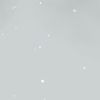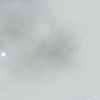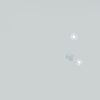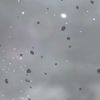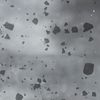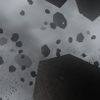
|
This wiki is closed in favour of the new wiki. Information shown is likely to be very out of date. |
Difference between revisions of "Auvergne"
m (Looks like Auvergne is gone. Can't find it in FLStat and the Companion. Historical flag added. (Version 4.91)) |
m (Areas of interesst: Pictures re-added.) |
||
| Line 53: | Line 53: | ||
'''Limagne Nebula''' | '''Limagne Nebula''' | ||
| − | A small but dense dust nebula. The Maquis frequently use its cover to shake off Royal Navy patrols. | + | A small but dense dust nebula. The Maquis frequently use its cover to shake off Royal Navy patrols. |
| + | |||
| + | [[Image:Limagne Nebula.jpg|100px|left|]] | ||
| + | {{Clear}} | ||
'''Couze Nebula''' | '''Couze Nebula''' | ||
| + | |||
A small but dense field of space dust orbiting planet | A small but dense field of space dust orbiting planet | ||
Brioude. | Brioude. | ||
| + | |||
| + | [[Image:Couze Nebula.jpg|100px|left|]] | ||
| + | {{Clear}} | ||
| + | |||
'''Chavanon Dark Matter Cloud''' | '''Chavanon Dark Matter Cloud''' | ||
A sizable Dark Matter Nebula on the outskirts of the Auvergne system. Surveyed and marked as a navigational hazard, it is currently avoided by all civilian and military traffic. | A sizable Dark Matter Nebula on the outskirts of the Auvergne system. Surveyed and marked as a navigational hazard, it is currently avoided by all civilian and military traffic. | ||
| + | |||
| + | [[Image:Chavanon Dark Matter Cloud.jpg|100px|left|]] | ||
| + | {{Clear}} | ||
| + | |||
'''Truyere Dust Cloud''' | '''Truyere Dust Cloud''' | ||
A sparse field of small asteroids and space dust with no useful resources. | A sparse field of small asteroids and space dust with no useful resources. | ||
| + | |||
| + | [[Image:Truyere Dust Cloud.jpg|100px|left|]] | ||
| + | {{Clear}} | ||
| + | |||
==Asteroid Fields== | ==Asteroid Fields== | ||
| Line 73: | Line 89: | ||
A large planetary debris field. Areas inside the field vary in density and asteroid size, suggesting that the cosmic collision that produced the field has occurred relatively recently, possibly less then a million years ago. | A large planetary debris field. Areas inside the field vary in density and asteroid size, suggesting that the cosmic collision that produced the field has occurred relatively recently, possibly less then a million years ago. | ||
| + | |||
| + | [[Image:Allier Asteroid Field.jpg|100px|left|]] | ||
| + | {{Clear}} | ||
| + | |||
'''Sioule Asteroid Field''' | '''Sioule Asteroid Field''' | ||
| + | A field of rock asteroids. No useful resources were detected in surveys, but over the past years, Council activity in and around the field has increased significantly. | ||
| + | |||
| + | [[Image:Sioule Asteroid Field.jpg|100px|left|]] | ||
| + | {{Clear}} | ||
| − | |||
==Jump Gates/Holes== | ==Jump Gates/Holes== | ||
Revision as of 12:11, 25 November 2018
Error creating thumbnail: Unable to save thumbnail to destination
|
This page has been retired but kept for historical or other reasons, The information on this page may be incorrect, out of date or just not relevant to this version of Discovery. It should not be taken as canon nor any authority on the current version of Discovery. It is kept simply to show some history of the Discovery Mod:
See also:
|

|
A lot of these system pages are outdated, Space's nav map may be better. |
Auvergne is one of the very less Gallic systems with no livable planet, so it was colonized very late and is part of the Gallic Borderworlds. Auvergne is a very pretty system with a small population that is still developing. The system far away from Gallic core serves as the only connection to the Provence-System by a Jump Gate, but the main Trade Laneto the gate is still not finished. The system is no hotspot and does not offer many jobs so the living price on the space colonies is the cheapest in all Gallia; since the Second Gallic War many Refugees from Languedoc that did not left the system with the Republicans are now heading to Auvergne because of the price. Auvergne's econmy is based on the production and mining of Holmium & Polymers and the manufacting of civilian ship at Riom Shipyard or by people that make a break on their way to Provence.
| System navmap (FL, v4.88.1) (link) |
|---|
| System navmap (FLC, v4.88.1) (link) |
|---|
System Overview
|
Local factions
Lawful
Semi-Lawful
Unlawful
Stations
|
Planets
|
Commodities
Produced
Mineable
|
Areas of Interest
Nebulae
Limagne Nebula
A small but dense dust nebula. The Maquis frequently use its cover to shake off Royal Navy patrols.
Couze Nebula
A small but dense field of space dust orbiting planet
Brioude.
Chavanon Dark Matter Cloud
A sizable Dark Matter Nebula on the outskirts of the Auvergne system. Surveyed and marked as a navigational hazard, it is currently avoided by all civilian and military traffic.
Truyere Dust Cloud
A sparse field of small asteroids and space dust with no useful resources.
Asteroid Fields
Allier Asteroid Field
A large planetary debris field. Areas inside the field vary in density and asteroid size, suggesting that the cosmic collision that produced the field has occurred relatively recently, possibly less then a million years ago.
Sioule Asteroid Field
A field of rock asteroids. No useful resources were detected in surveys, but over the past years, Council activity in and around the field has increased significantly.
Jump Gates/Holes
| Spoiler: Jump Hole/Gate Locations | |||||||||||||||
|---|---|---|---|---|---|---|---|---|---|---|---|---|---|---|---|
|








